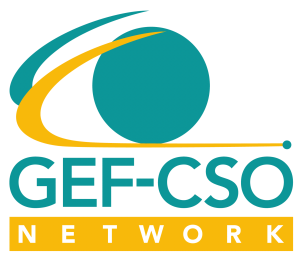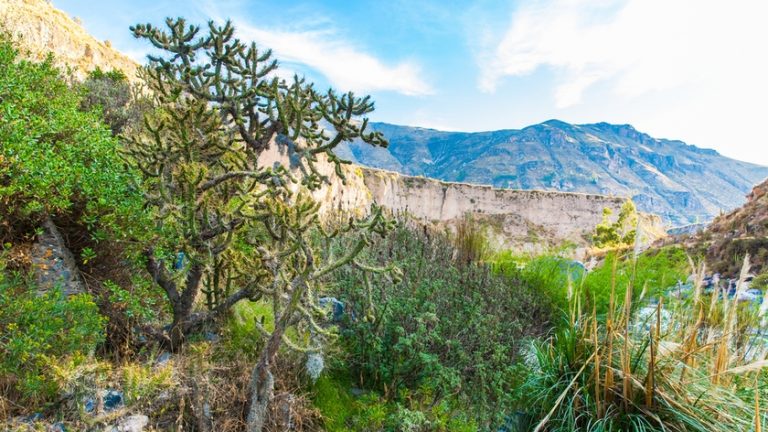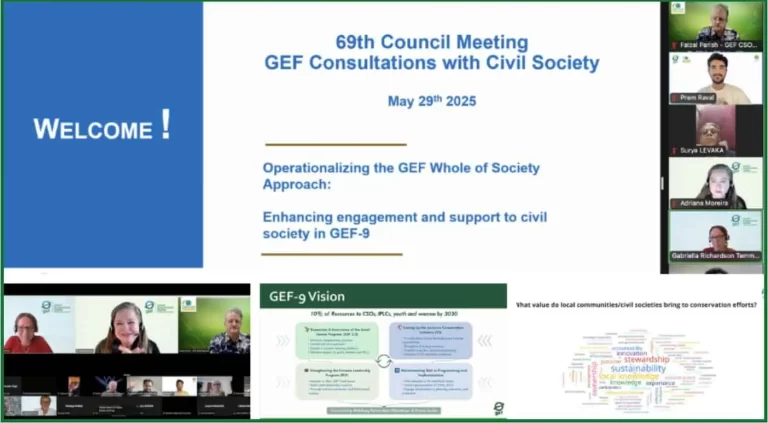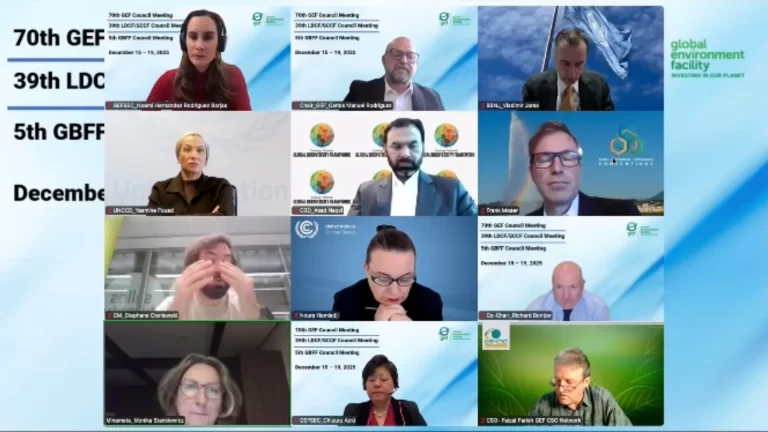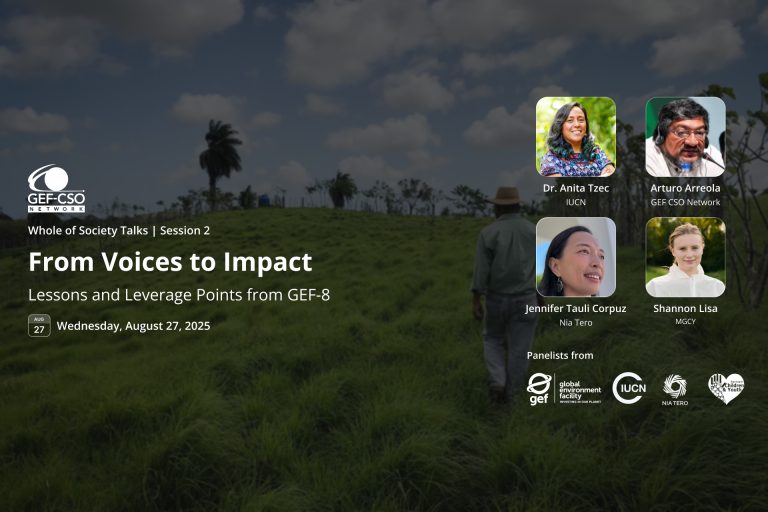Kasane, Botswana – October 9, 2025 – Representatives from GEF member governments, agencies, and civil society organizations (CSOs) gathered in Kasane, Botswana from October 7–9, 2025, for the second official meeting on the ninth replenishment of the Global Environment Facility (GEF-9). The discussions focused on funding strategies, programming directions, and policies for the 2026–2030 cycle, a period critical to addressing climate change, biodiversity loss, pollution, and other interlinked environmental crises.
GEF CEO and Chairperson Carlos Manuel Rodríguez described the GEF as a “source of hope” in uncertain times, emphasizing the importance of a strong replenishment to support global environmental goals. “In uncertain times, it is extremely important that we’re able to give hope for a brighter future,” he said. “The GEF can help achieve global environmental goals and foster harmony between people and nature.”
CSO Engagement Central to Effective GEF-9 Programming
For the GEF CSO Network, the meeting underscored the vital role that civil society organizations play in implementing and monitoring GEF-supported projects. CSOs are uniquely positioned to connect local communities, Indigenous peoples, women, and youth with global environmental financing, ensuring that funding reaches those who can make the greatest impact on the ground. During the discussions, several donor countries—including Australia, Canada, Belgium, Germany, Sweden, Switzerland, and the UK—highlighted the importance of strengthening CSO engagement in GEF programming, supporting grassroots initiatives, and enhancing accountability.
The meeting included discussions on strategic programming directions, policy frameworks, and financial allocation principles for GEF-9. Key highlights relevant to CSOs include:
- Scaling up Small Grants Programme (SGP): Australia advocated for an increase in SGP funding to 6% of the GEF-9 envelope, recognizing its critical role in supporting community-led environmental projects.
- New Implementing Agency for Indigenous Peoples: Canada and Australia supported establishing a new agency to channel GEF funding directly to Indigenous communities, empowering them to lead conservation and restoration initiatives.
- Inclusive Participation: Donor statements reinforced the importance of meaningful engagement of CSOs, women, youth, and Indigenous peoples throughout GEF-9 implementation, ensuring that programming is equitable and locally relevant.
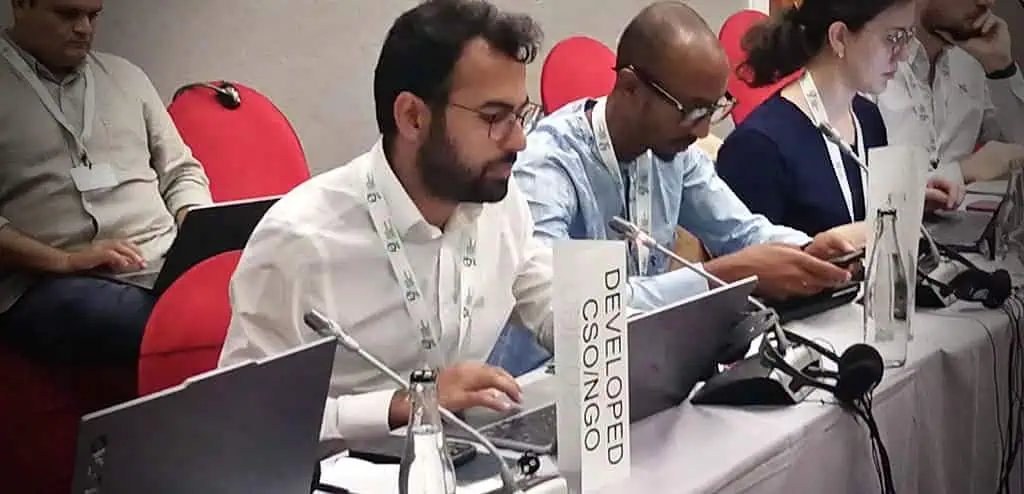
CSOs Can Support GEF-9 Implementation
Civil society organizations can play multiple roles in helping GEF achieve its ambitious objectives. They can:
- Advocate for transparent, inclusive, and locally relevant programming.
- Facilitate participation of Indigenous peoples, local communities, and vulnerable groups.
- Support monitoring and evaluation of GEF projects to ensure accountability.
- Mobilize local knowledge and expertise to strengthen project design and outcomes.
- Promote innovative approaches to ecosystem restoration, biodiversity conservation, and climate resilience.
By leveraging their networks and expertise, CSOs help ensure that GEF investments not only fund projects but also empower communities to lead long-term environmental stewardship.
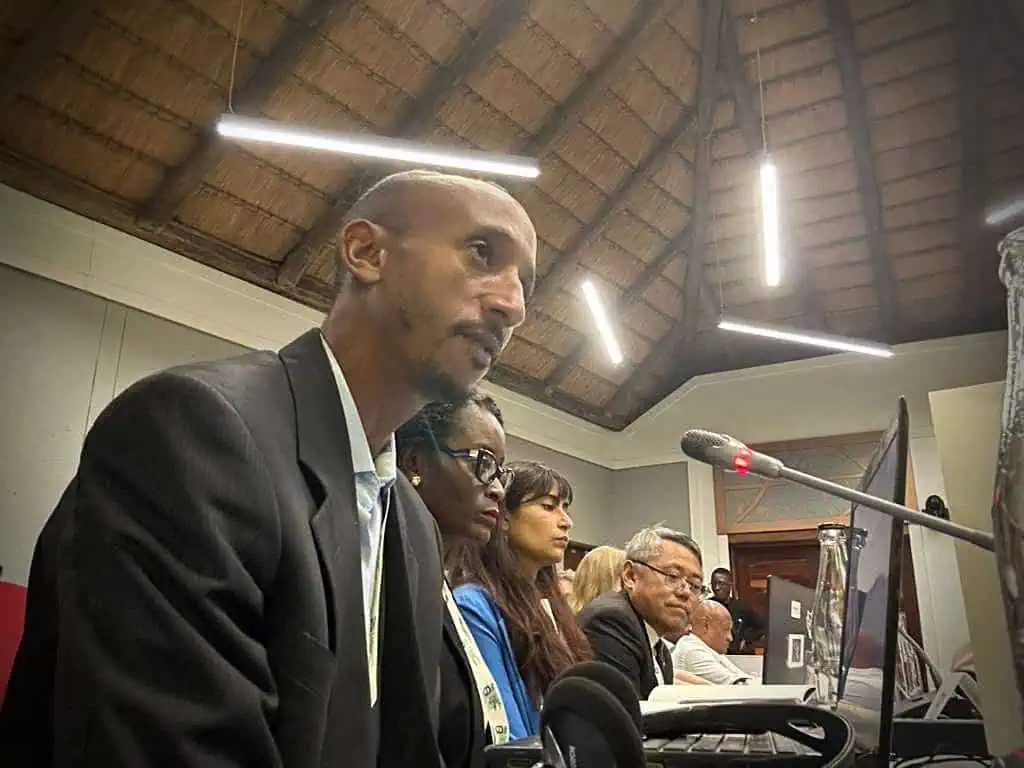
Site Visit Highlights Local Impact
Before the meeting, delegates visited Chobe National Park in the Kavango-Zambezi Transfrontier Conservation Area (KAZA), the largest land-based transboundary conservation area in the world. GEF-funded initiatives have strengthened the management of KAZA’s protected areas, supporting biodiversity, ecotourism, and regional stability. The visit illustrated how GEF resources can translate into tangible benefits for local communities, wildlife, and ecosystems alike.
Looking Ahead
The next official GEF-9 meeting is scheduled for January 2026 in Bonn, Germany, followed by a pledging meeting in April. A final decision on the GEF-9 funding envelope is expected by June 2026. The outcomes of these discussions will shape the GEF’s strategic impact during a crucial period for global environmental action.

Statements from the GEF CSO Network
The GEF CSO Network actively contributed to the discussions, submitting statements on every agenda item during the Kasane meeting. The Network highlighted key priorities for CSOs, Indigenous peoples, women, and youth, and engaged in productive exchanges with donors and GEF leadership. Many of the Network’s recommendations were acknowledged and supported by donor countries, including proposals to expand SGP funding and establish mechanisms for direct Indigenous-led funding.
You can access the Network’s statements on all agenda items [here] (links to PDFs). These statements provide guidance for strengthening CSO participation and ensuring that GEF-9 funding delivers meaningful, locally driven environmental outcomes.
